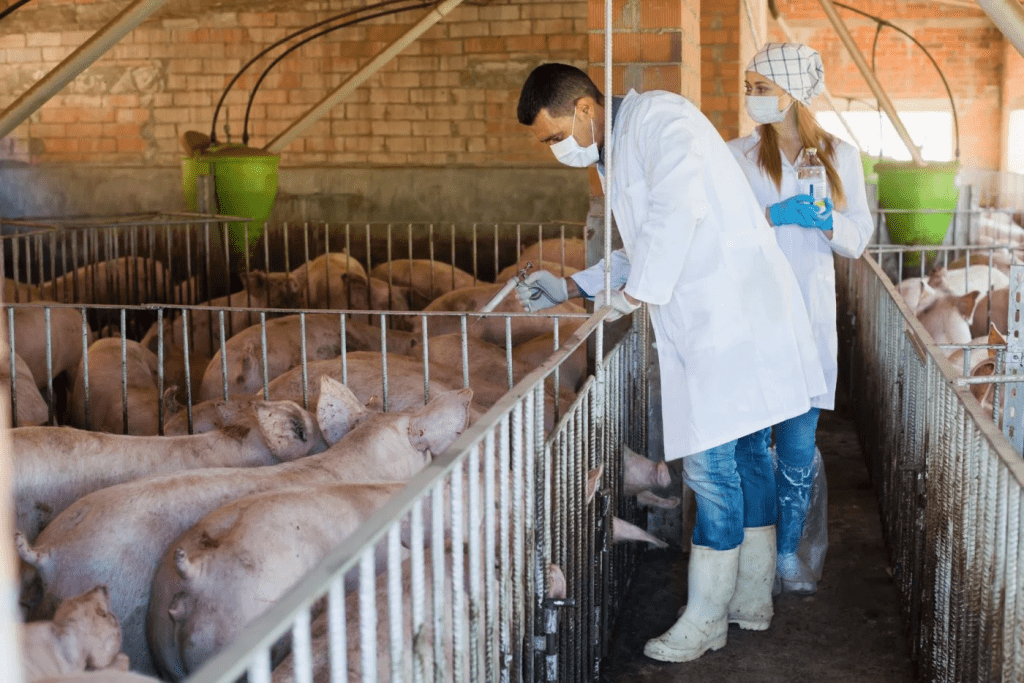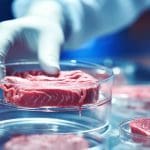The consumption of meat is often seen as a personal choice, but its implications reach far beyond the dinner plate. From its production in factory farms to its impact on marginalized communities, the meat industry is intricately linked to a series of social justice issues that deserve serious attention. By exploring the various dimensions of meat production, we uncover the complex web of inequality, exploitation, and environmental degradation that is exacerbated by the global demand for animal products. In this article, we delve into why meat is not just a dietary choice but a significant social justice concern.
This year alone, an estimated 760 million tonnes (over 800 million tons) of corn and soy will be used as animal feed. The majority of these crops, however, will not nourish humans in any meaningful way. Instead, they will go to livestock, where they will be converted into waste, rather than sustenance. That grain, those soybeans—resources that could have fed countless people—are instead squandered in the process of meat production.
This glaring inefficiency is exacerbated by the current structure of global food production, where the vast majority of the world’s agricultural output is diverted to animal feed, not human consumption. The real tragedy is that, while vast amounts of human-edible crops are used to fuel the meat industry, they do not translate into greater food security. In fact, the great majority of these crops, which could have nourished millions of people, ultimately contribute to a cycle of environmental degradation, unsustainable resource use, and deepening hunger.
But the problem is not just about waste; it’s also about growing inequality. The United Nations (UN) and the Organisation for Economic Co-operation and Development (OECD) predict that global meat demand will continue to rise by an average of 2.5% annually over the next decade. This escalating demand for meat will result in a significant increase in the amount of grain and soy that must be grown and fed to livestock. Meeting this growing demand will directly compete with the food needs of the world’s poor, particularly in regions already struggling with food insecurity.
The UN/OECD report paints a grim picture of what’s to come: If this trend continues, it will be as if over 19 million tonnes of food, meant for human consumption, will be diverted to livestock in the next year alone. That number will increase exponentially, reaching over 200 million tonnes per year by the end of the decade. This isn’t merely a matter of inefficiency—it’s a matter of life and death. The diversion of such vast amounts of edible crops to animal feed will significantly exacerbate food shortages, especially in the world’s poorest regions. Those who are already most vulnerable—those without the resources to access sufficient food—will bear the brunt of this tragedy.
This issue isn’t just an economic concern; it’s a moral one. Every year, while millions of tonnes of crops are fed to livestock, millions of people go hungry. If the resources used to grow food for animals were redirected towards feeding the world’s hungry, it could help alleviate much of the current food insecurity. Instead, the meat industry operates at the expense of the planet’s most vulnerable people, driving a cycle of poverty, malnutrition, and environmental destruction.
As demand for meat continues to rise, the global food system will face an increasingly difficult dilemma: whether to continue fueling the meat industry, which is already responsible for vast amounts of wasted food, environmental degradation, and human suffering, or to shift towards more sustainable, equitable systems that prioritize human health and food security. The answer is clear. If current trends persist, we risk condemning a significant portion of humanity to a future marked by hunger, disease, and ecological collapse.
In light of these sobering projections, it’s imperative that we reassess the global food system. There is an urgent need to reduce our reliance on resource-intensive meat production and shift towards more sustainable and just methods of food production. By embracing plant-based diets, promoting sustainable farming practices, and ensuring that food resources are distributed equitably, we can mitigate the impact of rising meat demand, reduce waste, and work towards a more sustainable, just, and healthy future for all.
Labor Exploitation in the Meat Industry
One of the most visible and insidious forms of injustice in the meat industry is the exploitation of workers, particularly those in slaughterhouses and factory farms. These workers, many of whom come from marginalized communities, face grueling and dangerous working conditions. High rates of injury, exposure to toxic chemicals, and the psychological toll of processing animals for slaughter are common. The majority of these workers are immigrants and people of color, many of whom lack access to adequate labor protections or healthcare.
Furthermore, the meatpacking industry has a long history of discrimination, with many workers facing racial and gender-based inequalities. The work is physically demanding, and workers often endure low wages, lack of benefits, and limited opportunities for advancement. In many ways, the meat industry has built its profits on the backs of vulnerable workers who bear the brunt of its toxic and unsafe practices.

Environmental Racism and the Impact on Indigenous and Low-Income Communities
The environmental impact of factory farming disproportionately affects marginalized communities, especially those located near large-scale animal agriculture operations. These communities, often composed of Indigenous peoples and people of color, face the brunt of pollution from factory farms, including air and water contamination from manure runoff, ammonia emissions, and the destruction of local ecosystems. In many cases, these communities are already dealing with high levels of poverty and poor access to healthcare, making them more vulnerable to the harmful effects of environmental degradation caused by factory farming.
For Indigenous communities, factory farming represents not only an environmental threat but also a violation of their cultural and spiritual ties to the land. Many Indigenous people have long held deep connections to the earth and its ecosystems. The expansion of factory farms, often on lands that are historically important to these communities, represents a form of environmental colonization. As corporate agricultural interests grow, these communities are displaced and stripped of their ability to maintain traditional land-use practices, further exacerbating their social and economic marginalization.
Animal Suffering and Ethical Inequality
At the heart of the meat industry lies the exploitation of animals. Factory farming, where animals are raised in confinement and subjected to inhumane conditions, is a form of systemic cruelty. The ethical implications of this treatment are not only about animal welfare but also reflect broader social and moral inequalities. Factory farming operates on a model that sees animals as commodities, disregarding their inherent value as sentient beings capable of suffering.
This systemic exploitation is often invisible to consumers, particularly in the global North, where the meat industry uses economic and political power to shield itself from public scrutiny. For many people, particularly those in marginalized communities, animal suffering becomes a hidden injustice, one that they cannot escape because of the pervasive nature of the global meat market.
Additionally, the overconsumption of meat in wealthier nations is tied to global patterns of inequality. The resources that go into producing meat—such as water, land, and feed—are disproportionately allocated, leading to the depletion of environmental resources in poorer nations. These regions, often already facing food insecurity and economic instability, are unable to access the benefits of the resources that are used for mass meat production.

The Health Disparities Linked to Meat Consumption
Health disparities are another facet of the social justice concerns tied to meat consumption. Processed meats and factory-farmed animal products have been linked to various health problems, including heart disease, obesity, and certain types of cancer. In many lower-income communities, access to affordable, healthy food is limited, while cheap, processed meats are more readily available. This contributes to the health inequities that exist between affluent and marginalized populations.
Moreover, factory farming’s environmental impacts, such as air and water pollution, also contribute to health issues in nearby communities. Residents living near factory farms often experience higher rates of respiratory problems, skin conditions, and other diseases linked to the pollution emitted by these operations. The unequal distribution of these health risks underscores the intersectionality of social justice, where environmental harm and health inequalities converge to exacerbate the burdens on vulnerable populations.
Moving Toward a Plant-Based Future
Addressing the social justice concerns tied to meat consumption requires systemic change. One of the most impactful ways to address these issues is by reducing the demand for animal products and transitioning to plant-based diets. Plant-based diets not only alleviate the environmental damage caused by factory farming but also help address labor exploitation by reducing the demand for exploitative meat production. By supporting plant-based alternatives, consumers can challenge the entrenched inequalities in the meat industry.
Furthermore, plant-based diets can contribute to a more equitable global food system. By focusing on crops that provide nutrition without the environmental destruction caused by animal agriculture, the global food system can move toward more sustainable and just practices. This shift also offers an opportunity to support Indigenous communities in their efforts to reclaim land and resources for more sustainable forms of agriculture, while simultaneously reducing the harm caused by large-scale industrial farming operations.















































